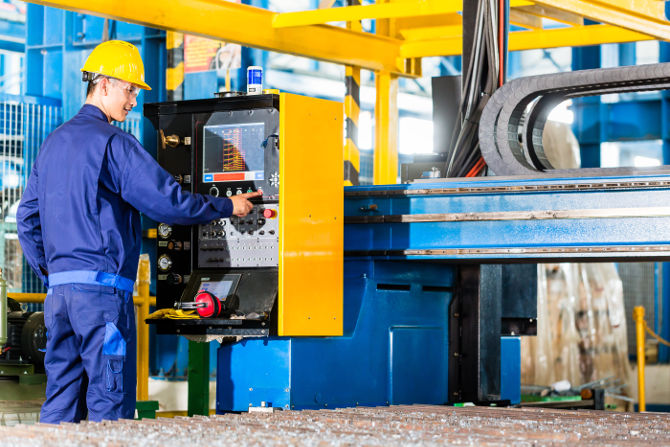According to the latest EEF/Aldermore Executive Survey, UK manufacturers are envisioning 2016 to be full of tough decisions and prominent risks due to ongoing economic hangover from 2015, while confidence slips in the industry itself within the UK.

The survey showed a low amount of confidence from UK manufacturers towards opportunities, with 44% seeing more risks on the horizon. This view is shared amongst all sectors, with larger companies feeling more strongly about it.
Global economic volatility is a key driver, with 42% of manufacturers noticing significant exchange rates movements, 36% see economic volatility in a major market while 36% see the UK’s place in the UK as a top risk factor in 2016. Elsewhere, over a third of manufacturers (36%) see the upward pressure of business costs being a risk to growth this year.
Globally, 40% expect to see a further deterioration of economic conditions in 2016, while 23% see an improvement. However, a third say (33%) that conditions closer to home are a more positive, while 32% are seeing a negative change.
Compared to the start of 2014, expectations are at a fairly low level, which has subsequently resulted in the UK losing some of its gloss, with only 56% of manufacturers are seeing their homeland as a competitive location in 2016 compared to 70% last year.
In more positive news, over half of manufacturers (55%) are expecting an increase in productivity and 43% expect a boost in UK sales and 43% in export sales. The main focus is to increase investment in technology and innovation to help support growth (41%).
Chief Executive of EEF, Terry Scuoler, comments: “The gloom that took the shine off UK manufacturing’s performance in 2015, is set to continue into 2016. But, while expecting similar challenges as those seen last year, manufacturers are still planning for growth.”
He continues: “Last week’s warning from the Chancellor about a dangerous cocktail of economic risks chimes with concerns reported by manufacturers. With worries also extending to the competitiveness of the UK business environment this is a wake-up-call and I would urge to the Government to continue to work pro-actively with industry to mitigate risks and boost opportunities for our sector.”
Carl D’Ammassa. Group Managing Director for Business Finance at Aldermore, added: “Manufacturing plays and important role in the UK economy and many manufacturing businesses, both large and small, are amongst the nation’s leading exporters.
“It is good news then that those manufacturers in a position to invest are generally able to secure the external finance that will enable them to do so.
“This should help to mitigate some of the anticipated risks and facilitate planned investment in technology and innovation, and also continue to reinforce the industry’s vital role in driving the UK’s ongoing economic recovery.”
Previous Post
The Uncertain Future of High Street Retail